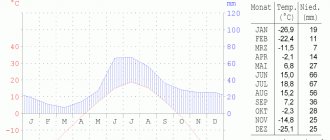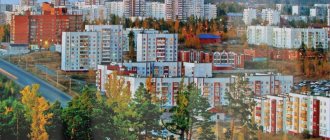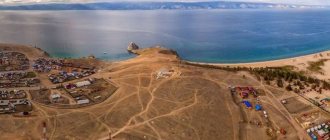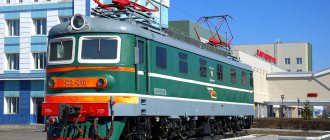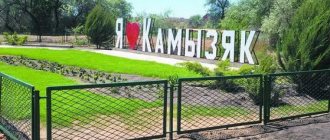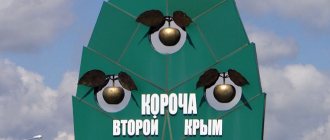Vikhorevka is a city (since 1966) in the Bratsk district of the Irkutsk region, on the left bank of the Vikhorevka River. It is an independent municipal entity, part of the Bratsk district. Refers to urban settlements at the district level (subordination).
Area: 15 km².
Time zone: UTC+8.
Population: 20,833 (2020).
Nationalities: Russians, Ukrainians, Buryats, Poles, Germans, Armenians, Azerbaijanis.
Confessions: Orthodox, Catholics, Evangelicals, Muslims.
Katoykonym: Vikhorevtsy, Vikhorevets, Vikhorevchane, Vikhorevchanin.
Telephone code: +7 3953.
Postal code: 665770.
OKATO code: 25204503.
OKTMO code: 25604103001.
Head of the city: Nikolai Yuryevich Druzhinin (since 2017).
Story
Vikhorevka station was founded in 1947 simultaneously with the construction of the Taishet - Ust-Kut railway. The labor of Taishetlag prisoners, mainly Japanese prisoners of war, was used in the construction of the road. Among the construction prisoners were also the so-called “Harbinites” - Russian residents of the city of Harbin, arrested by the Soviet authorities after the defeat of the Kwantung Army in August 1945. In the 1950s, the 410th Ozerlag penal camp was located in Vikhorevka.
Vikhorevka received city status in 1966.
Until 1993, the Vikhorevka branch of the Eastern Railway (NOD-4, Chuna - Lena) was based in Vikhorevka.
On May 26, 2009, after two years of construction, the new railway station building was opened.
On September 5, 2022, the city opened a square with four functional areas: children's, recreation, skate park and area with sports equipment.
Read on Irkipedia:
- Vikhorevka // “Historical Encyclopedia of Siberia” (2009)
- Vikhorevka // Great Soviet Encyclopedia, 3rd ed. (1969-78)
Notes
- ↑ 12
www.gks.ru/free_doc/doc_2016/bul_dr/mun_obr2016.rar Population of the Russian Federation by municipalities as of January 1, 2016 - ↑ 1 2 Vinokurov M.A. Sukhodolov A.P.
Cities of the Irkutsk region. - Irkutsk, 2010. - Gritsyak Evgen. A short note has given me a clue. Norilsk rebel. Pislya rebel. Kiev: Smoloskip. 2013. p. 148.
- Great Soviet Encyclopedia. Ch. ed. A. M. Prokhorov, 3rd ed. T. 5. Veshin - Gazli. 1971. 640 pp., ill.; 38 l. ill. and cards. 1 card-incl.
- [www.irk.ru/news/20090526/station/ The new station building opened at the Vikhorevka station in the Irkutsk region | News Irk.ru]
- [demoscope.ru/weekly/ssp/rus59_reg2.php All-Union Population Census of 1959. The size of the urban population of the RSFSR, its territorial units, urban settlements and urban areas by gender] (Russian). Demoscope Weekly. Retrieved September 25, 2013. [www.webcitation.org/6GDOghWC9 Archived from the original on April 28, 2013].
- ↑ 123456789
www.MojGorod.ru/irkutsk_obl/vihorevka/index.html People's encyclopedia “My City”. Vikhorevka - [demoscope.ru/weekly/ssp/rus70_reg2.php All-Union Population Census of 1970 The size of the urban population of the RSFSR, its territorial units, urban settlements and urban areas by gender.] (Russian). Demoscope Weekly. Retrieved September 25, 2013. [www.webcitation.org/6GDOiMstp Archived from the original on April 28, 2013].
- [demoscope.ru/weekly/ssp/rus79_reg2.php All-Union Population Census of 1979 The size of the urban population of the RSFSR, its territorial units, urban settlements and urban areas by gender.] (Russian). Demoscope Weekly. Retrieved September 25, 2013. [www.webcitation.org/6GDOjhZ5L Archived from the original on April 28, 2013].
- [demoscope.ru/weekly/ssp/rus89_reg2.php All-Union Population Census of 1989. Urban population]. [www.webcitation.org/617x0o0Pa Archived from the original on August 22, 2011].
- [www.perepis2002.ru/ct/doc/1_TOM_01_04.xls All-Russian Population Census 2002. Volume. 1, table 4. Population of Russia, federal districts, constituent entities of the Russian Federation, districts, urban settlements, rural settlements - regional centers and rural settlements with a population of 3 thousand or more]. [www.webcitation.org/65AdCU0q3 Archived from the original on February 3, 2012].
- [www.gks.ru/bgd/regl/B09_109/IssWWW.exe/Stg/d01/tabl-21-09.xls Number of permanent population of the Russian Federation by cities, urban-type settlements and districts as of January 1, 2009]. Retrieved January 2, 2014. [www.webcitation.org/6MJmu0z1u Archived from the original on January 2, 2014].
- [195.46.100.221/vpn2010/DocLib/totals-vpn2010-2.pdf Results of the 2010 All-Russian Population Census for the Irkutsk Region]. Retrieved September 23, 2013. [www.webcitation.org/6JqAskf9l Archived from the original on September 23, 2013].
- ↑ 12
[www.irkobl.ru/sites/economy/Anticorrup_ekspertiza/statistika.doc Population by municipalities as of January 1, 2012: stat. Bulletin / Irkutskstat. – Irkutsk, 2012. – 81 p.]. Retrieved September 24, 2016. [web.archive.org/web/20160306103555/irkobl.ru/sites/economy/anticorrup_ekspertiza/statistika.doc Archived from the original on September 24, 2016]. - [www.gks.ru/free_doc/doc_2013/bul_dr/mun_obr2013.rar Population of the Russian Federation by municipalities as of January 1, 2013. - M.: Federal State Statistics Service Rosstat, 2013. - 528 p. (Table 33. Population of urban districts, municipal districts, urban and rural settlements, urban settlements, rural settlements)]. Retrieved November 16, 2013. [www.webcitation.org/6LAdCWSxH Archived from the original on November 16, 2013].
- [www.gks.ru/free_doc/doc_2014/bul_dr/mun_obr2014.rar Table 33. Population of the Russian Federation by municipalities as of January 1, 2014]. Retrieved August 2, 2014. [www.webcitation.org/6RWqP50QK Archived from the original on August 2, 2014].
- [www.gks.ru/free_doc/doc_2015/bul_dr/mun_obr2015.rar Population of the Russian Federation by municipalities as of January 1, 2015]. Retrieved August 6, 2015. [www.webcitation.org/6aaNzOlFO Archived from the original on August 6, 2015].
- taking into account the cities of Crimea
- [www.gks.ru/free_doc/doc_2016/bul_dr/mun_obr2016.rar Population of the Russian Federation by municipalities as of January 1, 2016. Table “31. Population of cities and towns by federal districts and constituent entities of the Russian Federation as of January 1, 2016.” RAR archive (1.0 MB)]
Transport accessibility
The city is located 24 km from Bratsk and 938 km from the regional center (by rail). The Taishet-Lena railway passes through Vikhorevka. In addition, Vikhorevka is connected by a highway to Bratsk and to the Bratsk-Tulun highway, which connects to the Baikal federal highway (Novosibirsk-Irkutsk).
Distance from Vikhorevka to some cities, km
| City | Distance | |
| by rail | by road | |
| Bratsk | 24* | 43 |
| Taishet | 269 | 484 |
| Biryusinsk | 282 | 497 |
| Zheleznogorsk-Ilimsky | 286 | 304 |
| Alzamay | 340 | 417 |
| Nizhneudinsk | 432 | 327 |
| Ust-Kut | 454** | 412 |
| Ust-Ilimsk | 521 | 303 |
| Tulun | 549 | 204 |
| Krasnoyarsk | 687 | 853 |
| Winter | 688 | 337 |
| Cheremkhovo | 808 | 454 |
| Usolye-Sibirskoye | 871 | 527 |
| Angarsk | 899 | 558 |
| Irkutsk | 938 | 602 |
| Slyudyanka | 1064 | 714 |
| Baykalsk | 1099 | 753 |
*From Anzebi station.
**To Lena station.
Climate
The climate of the territory is sharply continental. In winter, a powerful anticyclone forms here, causing frosty, cloudy and calm weather with little precipitation. In summer, cyclonic activity develops, which is associated with significant amounts of precipitation. The annual precipitation is 400, 25-40% of which is solid precipitation, 60-75% is liquid. Snow cover forms in mid-October and is destroyed in the third ten days of April (180-190 days). Its height is 30-. The average annual air temperature is about -3°C. The coldest month is January (average temperature from –23 to –25°C). The average temperature in July, the warmest month, is from +17 to +18.5°C. Significant amplitude of fluctuations in extreme temperatures: from -60°C to +44°C. The frost-free period is short (80-100 days). Frosts occur even in July. When the weather is anticyclonic, there is a high frequency of calms. Average wind speeds in winter do not exceed 1-3 m/s. In the spring, due to the development of cyclonic activity, average monthly wind speeds increase (up to 4-5 m/s); in the summer they decrease again, revealing a slight increase in the fall. In the cold period, south-eastern and western winds predominate, in the warm period - western and north-western.
The first frost occurs on September 11, the last on June 7.
The average monthly temperature in January is −23.2 °C, in July + 17.5 °C. The average annual temperature is −2.7 °C.[2]
Population
Population dynamics
| 1959 | 1967 | 1970 | 1979 | 1989 | 1992 | 1996 | 2000 | 2001 |
| 10 861 | 16 000 | 17 901 | 20 502 | 23 872 | 24 500 | 24 700 | 24 600 | 24 400 |
| 2002 | 2005 | 2006 | 2007 | 2008 | 2009 | 2010 | 2011 | 2012 |
| 24 763 | 24 800 | 24 800 | 24 700 | 24 600 | 24 517 | 22 520 | 22 459 | 22 205 |
| 2013 | 2014 | 2015 | 2016 | 2017 | 2018 | 2019 | 2020 | |
| 21 963 | 21 767 | 21 597 | 21 459 | 21 279 | 21 118 | 20 955 | 20 833 |
The bulk of the working population is employed in railway transport enterprises, as well as in the logging and trade sectors, and in public sector enterprises.
Rivers of the Bratsk region
Vikhoreva (Vikhorevka)
Former Gaia.
It received its Russian name at the beginning of the 17th century. According to documents, foreman Vikhor Savin with a detachment and prisoners moved along Upper Tunguska in the spring of 1929. Reached the mouth of the river. Gea, handed over the prisoners to the Buryat prince Bayarakan, but he killed Savin and the other Cossacks, except one, stripped the latter naked and released him... The prince knew that a naked man would not go far - he would be eaten alive by a vile. The detachment was supposed to return in the same year, but the detachment did not arrive in Yeniseisk. In his report to the Yenisei governor in 1626, Maxim Perfilyev calls the river Gea, and when he went on a campaign to his brotherly land in 1630, he wrote in his “response” that he “found the place of death of Vikhory Savin’s detachment - the mouth of the Gea river.” In subsequent voivodeship documents (in 1631, 1632, 1633, etc.), instead of the river gea, they began to write as r. Whirlwind. This is how the name re came from the light hand of Maxim Perfilyev. The river lived with this name until 1940. And then they began to misinterpret the name and on the map of the Bratsk district for 1951 it was already written as Vikhorevka (V. Gerasimov).
Let us further consider V. Semenov’s version: The name of the Vikhoreva River is associated with the name of a Russian serviceman, the Streltsy centurion Vikhory Savin, nicknamed “Tereshka,” who was killed by the Buryats in 1630 on the Gea River - the original name of Vikhoreva. This is such an established version today that it is worth mentioning specifically. 1. Foreman Vikhor Savin and Pentecostalist Terech (Tereshka) Savin are two different persons. Vikhory did not have the nickname “Tereshka”. 2. Whirlwind Savin was not killed on the Gea River. And at the mouth of the Oka River, in the Kodogoni ulus. 3. Vikhor was killed in 1629, and the very next year, 1630, in Maxim Perfilyev’s reply, it was already called “Vikhoreva - the river,” which, according to the laws of the formation of toponymy, is impossible. 4. There is a settlement in the Bratsk region called Burninskie Vikhorya. The word “Whirlwind” does not semantically go back to the name of the foreman Savin, but is based on the geographical term “Whirlwind” - a place where birches grow with branches twisted by the wind, the so-called. "whirlwinds".
A river with banks covered with such birches is Vikhorya, the Vikhorevaya River. In turn, V. Gerasimov points out that the expression “vortex nest” was taken from Dahl’s dictionaries. However, the Siberian phraseological unit “vortex nest” appeared only in the 19th century (see “Dictionary of phraseological units and other stable phrases of Russian dialects of Siberia.” - Novosibirsk: Nauka, 1972. - P. 39). The Vikhoreva River flows along the western border of the city from south to north. The total length of the river is 296 km, the catchment area is 5243 square meters. km. The Vikhorevka River is a river with spring floods and minor rain floods in the warm part of the year. Discharged industrial waste increases the average annual flow of the river. Whirlwinds by 56%. 46% of the supply is due to the influx of industrial and domestic wastewater, 20% from underground supply, 25% from snow and 8% from rain. Due to industrial discharges, the level and thermal regime of the river in the city area and below has been disrupted, therefore, throughout the entire length below the discharge site (BLPK - Bratskcomplexholding), the river has been disabled as a spawning ground for valuable fish species. The peace broken in 1629 by Yakov Khripunov brought many trials and sacrifices. The ulus princes did not want to tolerate Russians on their land, refused to pay yasak, and carried out reprisals against its collectors. No amount of persuasion had any effect on them. The “service” people were afraid to use force because of their small numbers, and they could not violate the voivode’s order: “It was not ordered to anger the brotherly people, but it was ordered to persuade them with affection.” Attempts to establish peaceful relations between Russians and Buryats often ended tragically. So, for example, during the persuasion of the Buryat “Prince Barakhan”, the “service man” Vikhor Savin was also killed.
This happened on a small river, to which the name of this man has been attached since then. Vikhorya - this is how local old-timers sometimes call the Vikhorevka River, which flows almost next to our city. The fact that Vikhorevka received its name precisely during this period, i.e. in 1629-1630, and not later, is evidenced by the recording of Maxim Perfilyev, made by him in 1631. “And the other Long Rapid in the Bratsk land beyond the Vikhoreva River is more than ten miles away.”
But this name could have appeared earlier, since the word Vikhorevka is clearly of Russian origin. And the Russians came to these places about a year, two before the events described.
Thus, having inherited his name from the deceased Cossack, the Vikhorevka river not only retained it, but also transferred it to two settlements - the village of Ust-Vikhorevo, located at the confluence of the Vikhorevka with the Angara, and the city of Vikhorevka, which arose in its middle course.
(Three points on the map of the region. Vikhorevka // Angarida: Bratsk district is 70 years old / edited by V.F. Gerasimov. - M., 1996. - P. 92.) Literature:
1. Gerasimov, V.F. Settlements // The Legend of the Brotherly Land / V.F. Gerasimov. - Bratsk, 2006. - P. 42. 2. Gerasimov, V. What would Semenov do without Dahl? // Fair Plus. – 2000. – December 2. 3. Melkheev, M.N. Vikhoreva // Geographical names of Eastern Siberia: Irkutsk and Chita regions / M.N. Melkheev. – Irkutsk, 1969. – P. 30. 4. Piskunov, N. Vikhorevka // Angarida: Bratsk region is 70 years old. – M., 1996. – P. 92. 5. Semenov, V. Myths of old Bratsk // Fair Plus. – 2000. – November 4. 6. Semenov, V. Toponymy of the Bratsk region // Mainland. – 2004. – No. 3. – P. 12-17. 7. Three points on the map of the area. Vikhorevka // Angarida: Bratsk region is 70 years old / ed. V.F. Gerasimova. – M., 1996. – P. 92.
Social sphere
The social and cultural sphere of the city is served by four kindergartens, five secondary schools, a children's art school, a House of Children's Creativity, a rehabilitation center for disabled children, and the Solnyshko children's social shelter.
With the beginning of the implementation of the national project “Education” in the country, Vikhorevskaya school No. 101 (former No. 1, created in 1952) received a grant in the amount of 1 million rubles.
Vikhorevskaya secondary educational school No. 2 is a reference center for the introduction of pre-vocational training. In 1997 she won the Russian School of the Year competition.
The city has a central library network, two cultural centers, and sports complexes “Taiga” and “Lokomotiv”. The Tayozhny sports complex hosts sports competitions in kickboxing, volleyball, swimming, football, and ballroom dancing.
Healthcare is provided by city and railway hospitals. There is also a social shelter for the elderly.
Within the city there is a sanatorium-preventorium "Sosnovye Springs" - a year-round medical and preventive general therapeutic institution with 100 beds for Eastern Railway workers. Here, without interruption from production, health improvement and prevention of cardiovascular, gastrointestinal and nervous diseases, as well as diseases of the respiratory system, musculoskeletal system, etc. are carried out. There is a rehabilitation department for people with occupational diseases, as well as for victims of accidents in the workplace. production. There is a year-round children's health camp for children with 50 places (pulmonology, gastroenterology, neurology, urology, cardiology, orthopedics, otolaryngology).
Economy
- Locomotive operational depot Vikhorevka TCHE-9,
- Wagon depot VChD-11 (JSC VRK)
- Bratsk locomotive repair depot TMH
- Recovery train VP-8
- Vikhorevsky section of NGCH-1
- Vikhorevsky section DPMu-17 SPMS-337
- Track machine station PMS-66
- Vikhorevsky section of the wagon operational depot VCDE-13
- station DS Vikhorevka
- Vikhorevsky control center for the operation of DCS stations
- Vikhorevsky section of OMTO-1
- Sanatorium-preventorium “Sosnovye Rodniki”
- Bratsky)
- BFSK "Lokomotiv"
- Training center UCPC VSJD
- Vikhorevskaya track distance PCH-17
- Vikhorevskaya signaling and blocking distance ShCh-10
- Regional communications center RCS-1
- Motor car depot
- Vikhorevskaya power supply distance ECh-8
- Vikhorevsky section of DTV-1
- Vikhorevsky section of the DPO
- Vikhorevka station
- NORV 4 of the Taishet detachment of the branch of the FGP VO Railway of Russia on the Eastern Railway
- LLC "Zheldorohrana"
- LLC "SKA - Consulting and Outsourcing Systems" - motor transport enterprise
- LLC "Baikal" (logging and wood processing enterprise).
- "Vikhorevskaya oil depot - Branch of the Joint Stock Company "Irkutsknefteproduct" Rosneft
- MU RES-1 JSC "BESK"
- Vikhorevsky production site of the Bratsk forestry enterprise
- LLC "Board of Eastern Siberia"
- LLC "Hunting Fisheries"
- LLC "Finteko"
- PCh-122 of the Bratsk branch of the State Public Institution "Fire Service of the Irkutsk Region"
- LLC "Thermal Networks"
- MUP "ZhilServis"
- MUP "ZhES"
- LLC "Our City"
- LLC Management Company "Housing Maintenance Service"
- LLC "Our House"
- Bratsk LO Ministry of Internal Affairs of Russia on transport
- Security agency "Vympel"
- Security agency "Centaur"
- IK-25
- LIU-27
- "ROSTO" DOSAAF
- OGBUZ "Brotherly District Hospital" "VGB"
- NUZ UP at the station. Vikhorevka JSC Russian Railways
- SES VF FGUZ
- Add. office in Vikhorevka of the branch of OJSC "VSTKB"
- Add. office in Vikhorevka of the branch of OJSC "VTB24"
- OKASB RF branch of Sberbank of the Russian Federation Bratsk branch No. 2413
Natives and residents
- Ablamsky Vladimir Pavlovich - photographer, former prisoner of Ozerlag. Author of a collection of photographs about Ozerlag. Diploma winner at the Berlin photo exhibition for a series of photographs about Bratsk (1971).
- Kulikova Natalya Sergeevna is a Russian volleyball player and forward. National team player (2006-2008). World champion 2006.
- Happy Pyotr Vasilievich is a Russian hockey player, center forward. Bronze medalist at the 2007 World Championships.
Excerpt characterizing Vikhorevka
Here he lies on an armchair in his velvet fur coat, resting his head on his thin, pale hand. His chest is terribly low and his shoulders are raised. The lips are firmly compressed, the eyes shine, and a wrinkle jumps up and disappears on the pale forehead. One of his legs is trembling almost noticeably quickly. Natasha knows that he is struggling with excruciating pain. “What is this pain? Why pain? How does he feel? How it hurts!” - Natasha thinks. He noticed her attention, raised his eyes and, without smiling, began to speak. “One terrible thing,” he said, “is to bind yourself forever to a suffering person. This is eternal torment." And he looked at her with a searching look—Natasha now saw this look. Natasha, as always, answered then before she had time to think about what she was answering; she said: “This cannot go on like this, this will not happen, you will be healthy - completely.” She now saw him first and now experienced everything that she had felt then. She remembered his long, sad, stern look at these words and understood the meaning of the reproach and despair of this long look. “I agreed,” Natasha was now telling herself, “that it would be terrible if he remained always suffering. I said it that way only because it would have been terrible for him, but he understood it differently. He thought it would be terrible for me. He still wanted to live then - he was afraid of death. And I told him so rudely and stupidly. I didn't think that. I thought something completely different. If I had said what I thought, I would have said: even if he were dying, dying all the time before my eyes, I would be happy compared to what I am now. Now... Nothing, no one. Did he know this? No. Didn't know and never will. And now it will never, never be possible to correct this.” And again he spoke to her the same words, but now in her imagination Natasha answered him differently. She stopped him and said: “Terrible for you, but not for me. You know that I have nothing in life without you, and suffering with you is the best happiness for me.” And he took her hand and squeezed it as he had squeezed it on that terrible evening, four days before his death. And in her imagination she told him other tender, loving speeches that she could have said then, which she said now. “I love you... you... I love you, I love you...” she said, convulsively squeezing her hands, gritting her teeth with fierce effort. And sweet grief overwhelmed her, and tears were already welling up in her eyes, but suddenly she asked herself: to whom is she telling this? Where is he and who is he now? And again everything was clouded with dry, hard bewilderment, and again, tensely knitting her eyebrows, she peered at where he was. And so, it seemed to her that she was penetrating the secret... But at that moment, just as something incomprehensible was opening up to her, the loud knock of the door lock handle painfully struck her ears. Quickly and carelessly, with a frightened, uninterested expression on her face, the maid Dunyasha entered the room. “Come to daddy, quickly,” said Dunyasha with a special and animated expression. “It’s a misfortune, about Pyotr Ilyich... a letter,” she said, sobbing. In addition to the general feeling of alienation from all people, Natasha at this time experienced a special feeling of alienation from her family. All her own: father, mother, Sonya, were so close to her, familiar, so everyday that all their words and feelings seemed to her an insult to the world in which she had lived lately, and she was not only indifferent, but looked at them with hostility . She heard Dunyasha’s words about Pyotr Ilyich, about misfortune, but did not understand them. “What kind of misfortune do they have there, what kind of misfortune can there be? Everything they have is old, familiar and calm,” Natasha mentally said to herself. When she entered the hall, the father was quickly leaving the countess's room. His face was wrinkled and wet with tears. He apparently ran out of that room to give vent to the sobs that were crushing him. Seeing Natasha, he desperately waved his hands and burst into painful, convulsive sobs that distorted his round, soft face. - Pe... Petya... Come, come, she... she... is calling... - And he, sobbing like a child, quickly mincing with weakened legs, walked up to the chair and fell almost on it, covering his face with his hands. Suddenly, like an electric current ran through Natasha’s entire being. Something hit her terribly painfully in the heart. She felt terrible pain; It seemed to her that something was being torn away from her and that she was dying. But following the pain, she felt an instant release from the ban on life that lay on her. Seeing her father and hearing her mother’s terrible, rude cry from behind the door, she instantly forgot herself and her grief. She ran up to her father, but he, helplessly waving his hand, pointed to her mother’s door. Princess Marya, pale, with a trembling lower jaw, came out of the door and took Natasha by the hand, saying something to her. Natasha didn’t see or hear her. She entered the door with quick steps, stopped for a moment, as if in a struggle with herself, and ran up to her mother. The Countess lay on an armchair, stretching out strangely awkwardly, and banging her head against the wall. Sonya and the girls held her hands. “Natasha, Natasha!..” shouted the countess. - It’s not true, it’s not true... He’s lying... Natasha! – she screamed, pushing those around her away. - Go away, everyone, it’s not true! Killed!.. ha ha ha ha!.. not true! Natasha knelt on the chair, bent over her mother, hugged her, lifted her with unexpected strength, turned her face towards her and pressed herself against her. - Mama!.. darling!.. I’m here, my friend. “Mama,” she whispered to her, without stopping for a second. She did not let her mother go, gently struggled with her, demanded a pillow, water, unbuttoned and tore her mother’s dress. “My friend, my dear... mamma, darling,” she whispered incessantly, kissing her head, hands, face and feeling how uncontrollably her tears flowed in streams, tickling her nose and cheeks. The Countess squeezed her daughter's hand, closed her eyes and fell silent for a moment. Suddenly she stood up with unusual speed, looked around senselessly and, seeing Natasha, began squeezing her head with all her might. Then she turned her face, wrinkled in pain, towards her and peered at it for a long time. “Natasha, you love me,” she said in a quiet, trusting whisper. - Natasha, won’t you deceive me? Will you tell me the whole truth? Natasha looked at her with tear-filled eyes, and in her face there was only a plea for forgiveness and love. “My friend, mamma,” she repeated, straining all the strength of her love in order to somehow relieve her of the excess grief that was oppressing her. And again, in a powerless struggle with reality, the mother, refusing to believe that she could live when her beloved boy, blooming with life, was killed, fled from reality in a world of madness. Natasha did not remember how that day, that night, the next day, the next night went. She did not sleep and did not leave her mother. Natasha’s love, persistent, patient, not as an explanation, not as a consolation, but as a call to life, every second seemed to embrace the countess from all sides. On the third night, the Countess fell silent for a few minutes, and Natasha closed her eyes, resting her head on the arm of the chair. The bed creaked. Natasha opened her eyes. The Countess sat on the bed and spoke quietly. – I’m so glad you came. Are you tired, do you want some tea? – Natasha approached her. “You have become prettier and more mature,” the countess continued, taking her daughter by the hand. - Mama, what are you saying!.. - Natasha, he’s gone, no more! “And, hugging her daughter, the countess began to cry for the first time. Princess Marya postponed her departure. Sonya and the Count tried to replace Natasha, but they could not. They saw that she alone could keep her mother from insane despair. For three weeks Natasha lived hopelessly with her mother, slept on an armchair in her room, gave her water, fed her and talked to her incessantly - she talked because her gentle, caressing voice alone calmed the countess. The mother's mental wound could not be healed. Petya's death took away half of her life. A month after the news of Petya’s death, which found her a fresh and cheerful fifty-year-old woman, she left her room half-dead and not taking part in life - an old woman. But the same wound that half killed the countess, this new wound brought Natasha to life. A mental wound that comes from a rupture of the spiritual body is exactly the same as a physical wound, no matter how strange it may seem, after a deep wound has healed and seems to have come together at its edges, a mental wound, like a physical one, heals only from the inside with the bulging force of life. Natasha’s wound healed in the same way. She thought her life was over. But suddenly love for her mother showed her that the essence of her life - love - was still alive in her. Love woke up and life woke up. The last days of Prince Andrei connected Natasha with Princess Marya. The new misfortune brought them even closer together. Princess Marya postponed her departure and for the last three weeks, like a sick child, she looked after Natasha. The last weeks Natasha spent in her mother’s room had strained her physical strength.
